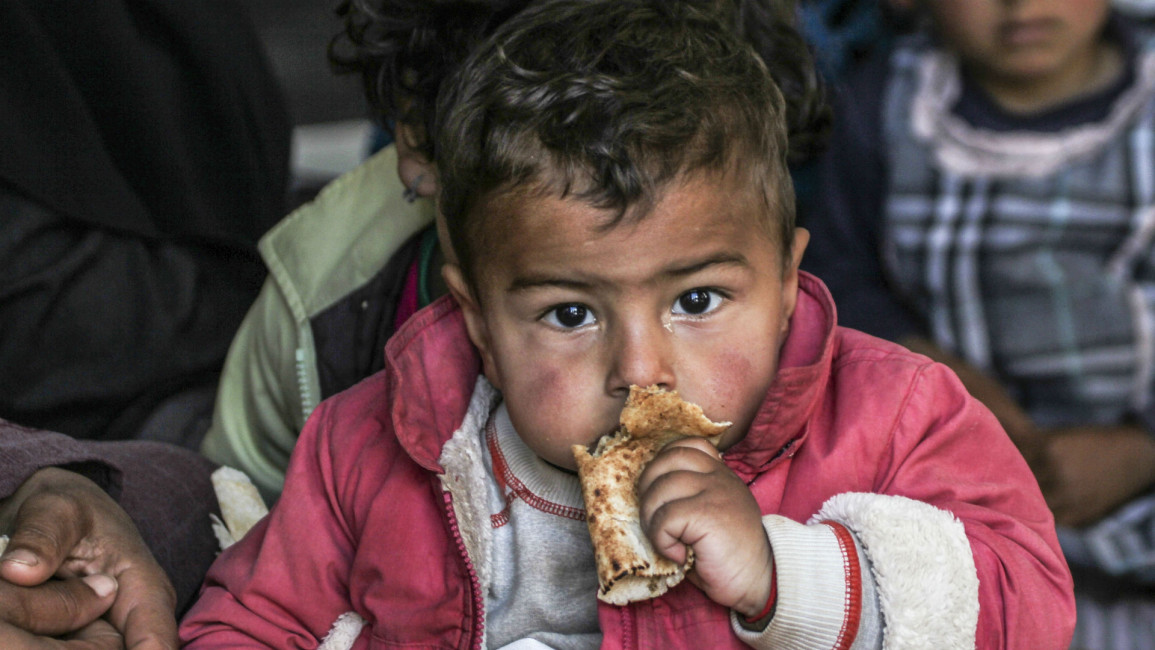UN: Food crisis compounds effect of war in Syria
Favourable rains have helped Syria's 2015 wheat harvest but the country's food insecurity is worsening overall because of war, two UN agencies said on Thursday.
Food production "remains way below its pre-crisis levels as the ongoing conflict continues to push more people into hunger and poverty," the Food and Agriculture Organization (FAO) and the World Food Programme (WFP) said in a report.
Around 9.8 million people in Syria are estimated to be "food insecure," with 6.8 million of these "severely food insecure," it said.
"Severely food insecure" means a level of need that requires external food aid.
Since January this year alone, more than half a million people have been displaced, which badly disrupts farming activities and the food market.
"Urgent donor support is needed to ensure farmers can meet the upcoming cereal planting season, beginning in October," said Dominique Burgeon, director of the FAO's Emergency and Rehabilitation Division.
Wheat production in 2015, estimated at 2.445 million tonnes, is expected to be better than the very poor harvest of 2014 and slightly better than that of 2013.
But it is still 40 percent lower than pre-conflict production levels.
Syria faces a wheat deficit of about 800,000 tonnes out of its yearly needs of nearly five million tonnes.
Livestock production, once a contributor to exports, has seen falls of 30 percent in cattle, 40 percent in sheep and goats, and of 50 percent in poultry.
De Mistura visits Damascus
Meanwhile, the UN's envoy to Syria met with its foreign minister in Damascus on Thursday as part of ongoing efforts to negotiate a solution to the four-year war, state media said.
"Staffan de Mistura presented the latest developments linked to his discussions and meetings in multiple countries" to Syrian Foreign Minister Walid Muallem, the official SANA news agency reported.
The Swedish-Italian diplomat has been holding meetings over the past two months with key players in the Syrian conflict to try to advance peace prospects.
According to the UN's Geneva office, in July de Mistura has visited China, Turkey, Jordan, Egypt, and Iran, which is one of the Syrian regime's main backers.
He met Syrian opposition figures in both Amman and Cairo, and will brief the UN Security Council on his efforts on July 28.
On Thursday, Muallem said he supported de Mistura's initiative to find a political solution and stressed that Syria continued to stand against extremism.
"Syria still considers the end of terrorism, and the drying up of its financial resources and support, to be among the country's most essential priorities," Muallem was quoted as saying.
Muallem also expressed support for a recent initiative floated by Russian President Vladimir Putin "to make a regional effort to end terrorism by implementing relevant UN security council resolutions."
The Syrian government and its media describe as "terrorists" the various armed groups who have been battling to oust President Bashar al-Assad's regime since 2011.
The Assad government has committed atrocities across Syria, making the prospect of national reconciliation distant.
The Security Council has been divided over Syria, with Russia blocking resolutions aimed at putting pressure on Assad to end the war.
De Mistura was appointed one year ago to take over what many termed a "mission impossible" to bring peace to Syria, after two top-notch diplomats, Kofi Annan and Lakhdar Brahimi, resigned after failing at the same task.
More than 230,000 people have died in the conflict and almost half of the country's population has been driven from their homes.



